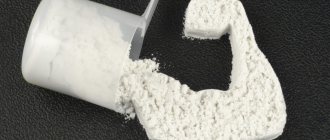Who should completely stop drinking alcohol?
Alcohol cessation is reducing the consumption of alcoholic beverages to a minimum level or completely eliminating them from your life. [1]
There are many reasons why people decide to give up alcohol completely at some point. These may be health problems caused, among other things, by excessive drinking. Another common reason is a person’s desire to lead a healthy lifestyle, experiencing all the benefits that come from quitting alcohol.
Sobriety is necessary if:
- Alcohol addiction develops rapidly - withdrawal symptoms appear, and you can no longer reduce the amount of alcohol you drink on your own.
- There are physical or mental illnesses that are aggravated by drinking alcohol.
- Even a small amount of alcohol leads to a loss of self-control - committing rash acts, excessive spending of money, aggression.
- Pregnancy is planned.
You can understand whether you are addicted to alcohol by asking yourself the question: “Are you looking for reasons or excuses why you can and should drink? How often does this happen? Assess how the situation has changed recently. Answer these questions as honestly as possible.
Let us help you quit alcohol
BUY ] WATCH VIDEO ABOUT THE SERVICE[/anchor]
This way you can understand whether you really need to give up alcohol, or whether you already drink it in small quantities and are not addicted.
Restoration of the body
The process of losing weight depends on the characteristics of the human body, some people immediately lose a lot of weight and boast: without alcohol, they have lost 5 kilograms or more, while others need several months to regain their normal shape. In any case, by limiting the amount of alcohol you can lose weight, here's why:
- Refusal of high-calorie products (alcohol);
- The snack turns into a regular meal, and the stomach lengthens to normal, and the amount of food consumed decreases;
- Physical activity increases - this happens by itself: you stop drinking and want to go for a walk, play sports - all patients who quit drinking say;
Another positive argument: more money. This is also true: the financial cost of beer and chips, shrimp or vodka with caviar is huge, and if this part of the cost is spent, then it is money for something else. Making a separate wallet and putting in it the amount that will be spent on alcohol is not unreasonable. It will be a very pleasant surprise at the end of the month.
Is it possible to lose weight if you don’t drink? The answer to this question is already known, but this does not mean that you should completely give up alcohol. Doctors themselves claim that a glass of wine once every two weeks will not do any harm at all, and may even benefit the body. The main thing is not to overdo it with the desire to lose weight and understand that it is much easier for men to lose weight - if a woman drinks for a long time, it will take much longer for her to gain weight. This is due to the peculiarities of physiology and hormonal levels: the female hormone itself “stores” a certain amount of fat. So, take action today if you want to dress up in your favorite jeans or dress.
Quit drinking calendar: what happens after you quit drinking?
“I won’t say that I drank too much or too often. But the mandatory minimum of alcohol was as follows: a Friday party with friends with cocktails, a couple of bottles of beer a week with an interesting movie, Sunday dinner with my husband with 1-2 glasses of wine. The decision to give up alcohol completely came unexpectedly. I just thought it would be nice to test myself to see if I could stop drinking alcohol completely. My life changed a lot when I quit.
As soon as I told my friends that I no longer drink, they took it as a joke and didn’t believe it for a long time. They thought that I was pregnant or sick with something, since I made such a decision. My husband and I’s acquaintances did not immediately get used to my complete sobriety. Even my mother was distrustful of this decision and asked if everything was okay. It’s strange, but in people’s understanding, sobriety is something out of the ordinary.
Giving up alcohol was not easy for me. No matter what holiday I came to, people I knew and didn’t know desperately tried to get me drunk - “here’s to your health,” “just a little bit.” There were more than enough temptations. But I held on. Only after a couple of months did I get used to the idea that there was no place for alcohol in my life.
After a couple of months, I noticed that I had lost weight. All these snacks for beer and wine were clearly harming my figure. I began to sleep much better - such vigor in the morning. My husband and I continue to meet with friends. But there were much fewer feasts and noisy parties. It turned out that without doping in the form of alcohol, loud music in bars is only annoying. I perceive all this as positive changes - I have so many free evenings. At the same time, no hangover in the morning. My husband and I signed up for a dance school. It's not just parties that can bring joy.
At the moment I have not drunk for six months. And I do not intend to interrupt my sober lifestyle - I liked it. I am glad about everything that happened to me after giving up alcohol. It’s like I’ve become freer.”
— Marina, 30 years old
If a person drinks only occasionally and strictly controls the amount of alcohol, giving up a bad habit will be easy for him. But when alcohol use develops into a disease, and physical dependence has already formed, the body will “resist” reducing the doses of alcoholic beverages. It is worth preparing for the fact that the transition to a healthy lifestyle will take more than one month.
How does the body recover after quitting alcohol?
| A period of time | Physiological and emotional changes |
| 1st day | After many years of drinking alcohol, even a day without alcohol is an impressive period of time. The body will “demand” another dose of ethyl alcohol. The first thing someone who quits drinking will have to deal with is withdrawal symptoms of varying severity. The symptoms are as follows:
|
| 2nd day | Signs of alcohol withdrawal syndrome are slightly reduced compared to the first day. But the body still undergoes an active detoxification process - the removal of breakdown products of ethyl alcohol. This may be accompanied by abdominal pain. In some cases, during the recovery of the body, discomfort in the liver also appears. My head continues to pound. A person who has begun to struggle with addiction seeks solitude, is irritated, sometimes aggressive, and suffers from insomnia or nightmares. He sees everything in black - it seems that it will always be this bad. Therefore, it is in the first days that it is most difficult to cope with the desire to drink. I want to get rid of this torment as quickly as possible. At this moment, severe anxiety and panic may arise, sometimes flowing into an obsessive thought that if you don’t drink, you can die. Everything is aggravated by the serious condition of the body: in the process of adjusting to work without alcohol, all systems of the body can malfunction, which is why this terrible impression arises - “I’ll die now if I don’t drink.” |
| 3rd day | The body begins its recovery in the first days after quitting alcohol. Physical well-being improves. But the psyche is still “at the limit.” Even the sound of a dripping faucet can irritate an addict. Mood swings provoke headaches and outbursts of aggression. Sleep still disturbed |
| 4-5th day | Withdrawal syndrome in addicts at the 1st and 2nd stages of alcoholism almost completely recedes. Someone who quits drinking develops an appetite. But large meals can cause nausea and problems with bowel movements. |
| 6-8th day | The addict's withdrawal symptoms completely go away. His mental state improves significantly. About 7 days after quitting alcohol, sleep returns to normal. A person begins to sleep more soundly, which means he feels much more alert than before. A surge of energy often makes you want to finally exercise. A person’s skin tone improves (swelling and red spots disappear) and hands stop shaking, and the functioning of the gastrointestinal tract is normalized. |
| 2 weeks | Over the next week, thought processes are restored - consciousness becomes clearer, confusion in thoughts finally disappears. Headaches no longer bother me. Doctors note that 2 weeks after completely giving up alcohol, heart rate and blood pressure return to normal, shortness of breath disappears and breathing is restored. A person who quits drinking may experience weight gain during this period. Some people try to compensate for giving up alcoholic drinks with delicious food. |
| Month | By the end of the first month after quitting alcohol, the body removes the breakdown products of ethyl alcohol. However, the psychological state can be severe: as a rule, the person is sad and depressed. He has lost his usual pattern of behavior, and this is stress. Now he needs to figure out how to live further, what to do, what to do, what to do, etc. Only after he has gone through the first stage of withdrawal does he rejoice and enjoy a sober life for several days, but immediately after that the “struggle of motives” begins - “to drink or not,” and this leads to tension and the risk of developing depression. On the one hand, a person understands that he feels better and that he has endured severe pain, but the cravings and the formed pattern of behavior do not allow him to let go of alcohol completely. A person is between “to be or not to be”; he begins to look for reasons to drink, he looks for excuses. Hence the mood swings and increased irritability. If you prepare for this, that is, understand that it is inevitable, but temporary and will pass soon, perhaps it will be a little easier. But the physical condition improves - teeth become whiter, swelling of the face and limbs disappears, circles under the eyes disappear. Trembling in the hands, if it was present before, no longer bothers me. During the first and subsequent months after quitting alcohol, liver function is actively restored |
| 3 months | When someone stops drinking, their immune system begins to work at full capacity. The person is healthy and energetic. He has already learned to spend his free time without alcohol, finding an interesting activity. Even a long period of abstinence is not a guarantee that a person will not relapse if he starts drinking alcohol again. The risk of relapse is still very high. If during periods of life's difficulties your hand reaches for a bottle of alcohol, you need to stop yourself. Only willpower will help you hold on. |
| Six months | 6 months is an impressive period of sober life. People struggling with an addiction usually find interesting interests and hobbies during this time. It helps you not to think about alcohol while enjoying life. |
| Year | The physical and emotional state of the person who quit drinking is stable. A person realizes that life without alcohol is wonderful. He actively communicates with friends and family, seeks goals in life and achieves them. After a long period of abstinence from alcohol, the liver and kidneys are completely restored, if no serious pathologies in the functioning of the organs were previously diagnosed |
Why does a person lose weight after quitting drinking?
Optimal odds in Live and Lines for matches and sporting events, and all this is available in the application, and smart you can click on the link for free and pick up a bonus using the MyAndroid promotional code.
I quit drinking and lost weight, this is not a myth, but a reality. Even though weight loss is a side effect, it doesn't make it any less enjoyable. Why:
- Alcoholic drinks contain calories and make you eat more - there is never a snack left on your plate. A drinking person cannot estimate the amount of food eaten, the calorie content of the product, he does not control his condition. Abstinence leads to a reassessment of appetite and menu: the number of servings decreases, and measured eating leads to the fact that if you stop drinking, you lose weight.
- Alcohol is instantly absorbed into the walls of the stomach and slows down the metabolic process. Thus, processing what you eat takes more time, and given that the body takes energy to break down alcohol not from fat reserves, but from muscle mass (it’s easier this way), everything that you eat and drink is stored in fat folds. I stopped drinking and started losing weight precisely because my metabolism returned to normal.
Thus, by drinking alcohol, the patient purposefully gains weight. But as soon as he stops drinking, he begins to lose weight. And as proof, there are several reasons why alcohol affects weight loss:
What happens if you stop drinking alcohol for a month?
- Dehydration of the system provokes the leaching from the body of a lot of useful elements and vitamins that are necessary for full muscle activity, which means we drink and move less, become lazy and get fat. Loss of water leads to the need to drink more, swelling appears, affecting body weight.
- And again about calorie content: alcoholic drinks do not provide any nutritional value, but they block the process of breaking down fat tissue. That is, the entire snack “will become a stake in the stomach” and will be deposited in reserve fat accumulations, which will also not allow you to lose weight - plus a few more kilograms.
- Emotional and physical liberation leads to overeating: ethyl alcohol inhibits the nerve satiety receptor, so the patient cannot stop eating, snacking on harmful calories with every sip of beer.
- Testosterone is a male hormone responsible for the formation of muscle fibers. Alcohol reduces the hormone content, disrupting the balance and reorienting the body to produce the female hormone, which is responsible for the accumulation of fat. This is why a man who drinks quickly develops folds on his stomach, hips, and chest area.
- In the process of research on the effect of alcohol on the body, it was found out: alcohol blocks the REM sleep phase, which negatively affects proper rest. But in order to lose weight, it is extremely important to get a good night's sleep - during sleep, somatotropic hormone is produced, which has a great influence on metabolic processes and metabolism.
- Ethyl alcohol negatively affects the entire gastrointestinal tract. The liver malfunctions, the level of enzymes responsible for processing food decreases, and many nutrients are not absorbed. When you stop drinking, your body returns to normal, so the postulate: I don’t drink and I lose weight has the most solid basis.
Abrupt cessation of alcohol: mistakes, consequences
There is an opinion that abruptly giving up alcohol can harm your health. This is only partly true.
If we are talking about rare consumption of alcohol in small doses, then completely abolishing alcohol-containing drinks will only have a positive effect on the condition of the body. With the right behavioral attitudes, a person can easily and painlessly give up alcohol. In this case, the phrase “you can’t suddenly quit drinking” is just an excuse for those who are not yet ready to lead a sober lifestyle.
And for people who have been diagnosed with the 1st or 2nd stage of alcoholism, abruptly giving up alcohol can really be harmful. They, as a rule, face real withdrawal. Withdrawal syndrome shows itself in all its glory. In the acute stage, it can provoke seizures and fainting, which is fraught with negative consequences for health. [1]
Why does the addict’s body react so violently to a decrease in the concentration of ethanol in the blood? If a person drank for a long time, the functions of the internal systems changed significantly under the influence of alcohol - the synthesis of enzymes and hormones was disrupted, and the organs began to malfunction. It takes time for the body to recover after quitting alcohol - the detoxification process lasts at least a month.
If alcoholism is diagnosed, the process of detoxification of the body must take place under the supervision of specialists. In some cases, drug withdrawal of the patient from binge drinking is required. Since sudden abstinence from alcohol can have negative consequences for a person’s health, it is impossible to practice various folk methods of getting rid of binge drinking.
Benefits of a sober lifestyle
Getting rid of alcohol addiction is a long journey, which can be accompanied by numerous relapses. This is a real test of willpower and endurance. But as a reward, you get all the benefits of a sober life.
What positive changes will occur after quitting alcohol?
Excellent health
Alcohol consumption negatively affects the condition of most organs. Even “weak” alcohol-containing drinks harm the liver, kidneys, pancreas, cardiovascular system, and gastrointestinal tract. Quitting alcohol is an effective prevention of many serious diseases that cause early death.
In general, a sober lifestyle strengthens the immune system. Say “no” to alcohol and you will see that you get sick less in winter. Already in the first month of quitting alcohol, the condition of your skin, hair and nails improves. You will notice that you look much better in appearance.
Sweet Dreams
There is an opinion that a couple of glasses of wine in the evening helps you fall asleep better. This is a myth that it is time to stop believing. When the effects of alcohol wear off, a person may wake up, which disrupts his rest. Sleep after drinking even a small amount of alcohol is restless and shallow.
After 2-3 weeks of complete abstinence from alcohol, sleep is restored. Your rest does not disturb anything, which means you feel cheerful in the morning. [2]
Feeling happy
Many people think that alcohol is a great antidepressant. But the fact is that it gives a good mood only for a short period of time. And then apathy, aggression, and guilt follow. The whole range of negative emotions goes away, you just have to drink a little more. This is how psychological dependence on alcohol is formed - a person stops enjoying life without the stimulation of alcoholic beverages.
By leading a sober lifestyle, you will gradually learn to be happy without alcohol. When giving up alcohol, the body will “resist” this, demanding another dose of doping. But only a month will pass, and you will look at the world with completely different eyes.
Excellent memory
Scientists have established
But disruption of neural connections is a reversible process. All you have to do is stop drinking. By giving up alcohol, you will notice that your thoughts become clearer - any information is better absorbed and remembered, and the overall performance of the brain improves. It is believed that memory efficiency can be restored in an average of 2-3 months.
Financial stability
Positive changes in the body are not the only benefit of quitting alcohol. Another nice bonus is saving money. High-quality alcoholic drinks are expensive - this can be a significant blow to the budget.
Calculate for yourself how much you will save per month if you stop having a daily serving of wine before bed.
Who should be concerned about alcohol addiction?
The following categories of people are at risk:
- Growing generation. Interest in alcohol before the age of 18 entails rapid changes in the body, in particular rapid addiction and the need for a dose of alcohol.
- Lovers of “hot” drinks. With a frequency of drinking alcohol-containing products 1-2 times a week and servings exceeding 2-3 glasses or glasses, they are susceptible to the development of dependence and the appearance of signs of alcoholism. The developed habit of drinking alcohol 3-4 times a week indicates an already existing disease.
- Female. With regular use, the problem develops faster, unlike in men. Women's alcoholism is difficult to cure and requires a long restoration of their former life.
- Inherited disease. Having a family of alcoholics at the genetic level lays the pathology to addiction. Inheriting a problem is also psychological in nature - projecting a lifestyle observed for years in a relative onto oneself.
- With a mental disorder. Alcoholic drinks are strictly prohibited for schizophrenics and paranoid people. Their impact aggravates the mental state and causes a strong degree of addiction. It is not recommended to use alcohol products for people with sleep disorders, anxiety, tremor, or depression.
- With various diseases. When health is impaired, a malfunction occurs in the endocrine system, metabolism, and central nervous system. When taking strong drinks, the need to increase their quantity is provoked.
- Stress-resistant. Prolonged stressful situations and the inability to cope with the difficulties that have arisen entail the desire to “drown” problems in alcohol and lead to the desire to drink.
If, however, you or a loved one are at risk, the advice of experts from the Residen-ReNa center will help overcome the problem:
- Change your social circle.
- Try such pastime patterns as going to the bathhouse, swimming, sports.
- Contact a specialized medical institution or visit an Alcoholics Anonymous group.
- Provide assistance together with your doctor.
It is important to remember that the environment has a significant impact on the creation of life patterns. It is important to avoid companies where alcohol abuse occurs. At the first signs of addiction to drinking, we recommend that you sign up for a consultation at the Residen-ReNa Drug Treatment Center.










